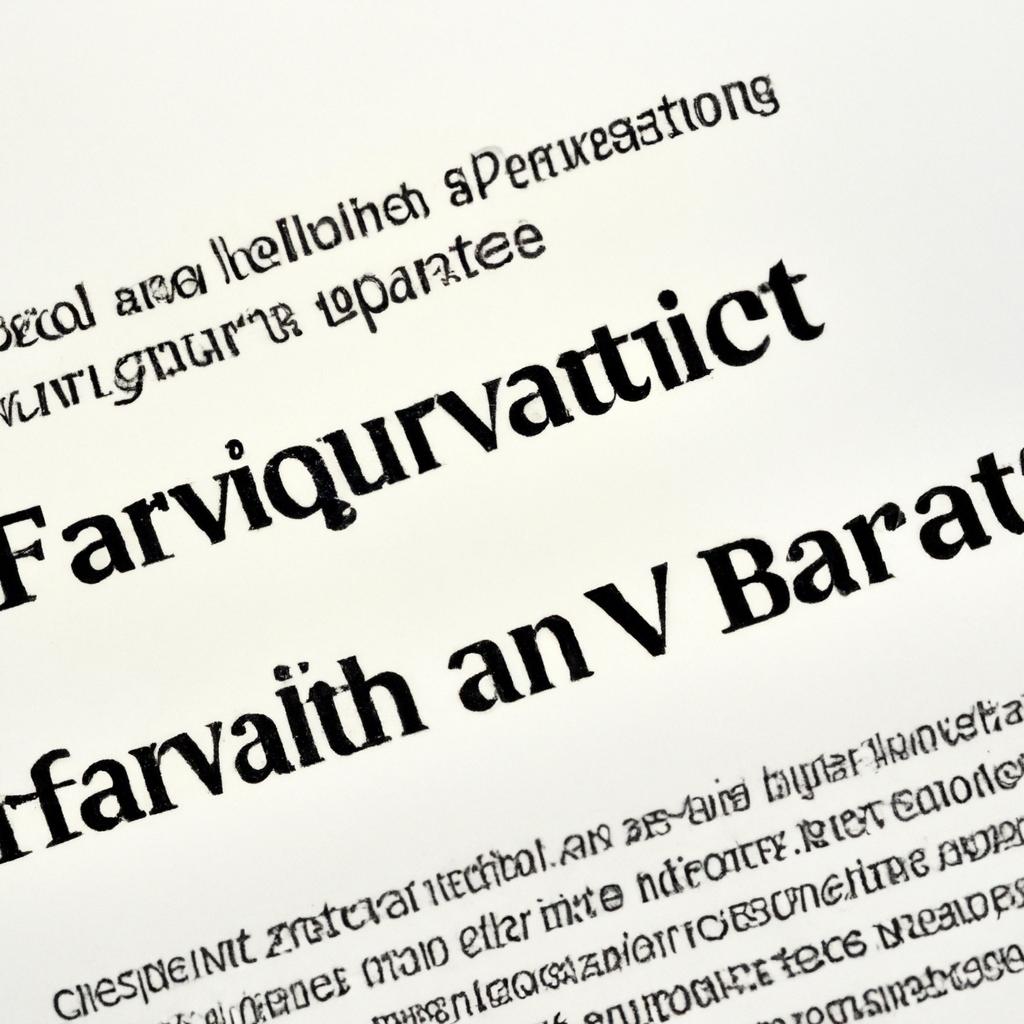In the intricate tapestry of estate planning and probate, navigating the division of inherited assets can often prove to be a delicate dance. One common scenario that may arise is when siblings find themselves co-owners of an inherited house, each with differing desires and visions for the property. As experienced legal advisors at Morgan Legal Group in New York City, we understand the complexities involved in such situations and are well-equipped to guide you through the process of purchasing a sibling’s share of the inherited home. In this article, we will delve into the intricacies of how to effectively buy out a sibling from an inherited house, ensuring a smooth and amicable resolution for all parties involved.
Understanding the Legal Implications of Inheriting a House with Siblings
When inheriting a house with siblings, it is important to understand the legal implications and complexities involved in such a situation. One common issue that may arise is how to handle the ownership of the property if one or more siblings wish to buy out the others. This process can be complex and emotional, but with proper guidance and legal advice, it can be managed effectively.
One method to buy a sibling out of an inherited house is to negotiate a fair buyout price. This price should reflect the current market value of the property and take into account any improvements or repairs that have been made. It is crucial to have a written agreement outlining the terms of the buyout, including payment schedules, timelines, and any other relevant details. Seeking the assistance of a knowledgeable estate planning attorney can help ensure that the buyout process is handled smoothly and legally.

Navigating the Process of Buying Out a Sibling’s Share in an Inherited Property
When it comes to , there are several important steps to consider. Firstly, it is crucial to determine the value of the property in question. This can be done through appraisals or by consulting with a real estate agent.
Next, it is essential to negotiate a fair buyout price with your sibling. This may involve considering factors such as market conditions, the condition of the property, and any outstanding debts on the property. Once a price has been agreed upon, it is important to formalize the agreement through legal documentation, such as a buyout agreement or deed transfer. Seeking legal guidance from an experienced probate attorney can help ensure that the process is completed smoothly and legally.

Considerations for Fair Valuation and Equitable Distribution in Buyout Agreements
When considering how to buy a sibling out of an inherited house, it is important to take into account fair valuation and equitable distribution in buyout agreements. This process can be complex and emotional, so it is crucial to approach it with care and consideration. Here are some key considerations to keep in mind:
- Get a professional appraisal: Before entering into any buyout agreement, it is essential to get a professional appraisal of the property. This will ensure that both parties have a clear understanding of the value of the property and can negotiate from an informed position.
- Consider the financial implications: Buying out a sibling from an inherited house can have significant financial implications. It is important to carefully consider how the buyout will be funded and what impact it will have on both parties’ financial situations.

Utilizing Legal Counsel and Mediation to Facilitate a Smooth Buyout Process
When it comes to buying out a sibling from an inherited house, utilizing legal counsel and mediation can be essential in facilitating a smooth process. Legal counsel can provide guidance on the legal aspects of the buyout, ensuring that all parties are protected and that the transaction is carried out in accordance with the law. Mediation can help to facilitate communication between siblings, ensuring that any disputes or disagreements are resolved in a peaceful and productive manner.
At Morgan Legal Group, our team of experienced attorneys is well-versed in the intricacies of estate planning and property law. We can provide the legal expertise needed to navigate the complexities of a sibling buyout, helping to ensure a fair and equitable resolution for all parties involved. By working with us, you can rest assured that your buyout process will be handled with professionalism and care, allowing you to move forward with confidence.
Q&A
Q: My sibling inherited a house with me, but I want to buy them out. How do I go about doing this?
A: Buying out a sibling from an inherited house can be a tricky process, but it is definitely doable. The key is to approach the situation with open communication and a clear plan.
Q: What are some factors to consider when determining a fair buyout price for a sibling?
A: When determining a fair buyout price for a sibling, it is important to consider the current market value of the property, any outstanding debts or liens on the house, and the financial contributions made by each sibling towards the maintenance and upkeep of the property.
Q: Are there any legal steps that need to be taken to complete the buyout process?
A: Yes, there are legal steps that need to be taken to complete the buyout process. This typically involves drafting a buyout agreement that outlines the terms of the sale, obtaining a property appraisal to determine the fair market value of the house, and transferring the title of the property to the sibling who is buying out the other.
Q: How can I ensure a smooth and amicable buyout process with my sibling?
A: To ensure a smooth and amicable buyout process with your sibling, it is important to maintain open communication, be transparent about your intentions and financial resources, and seek the advice of a real estate attorney or mediator if necessary. Remember, the goal is to come to a mutually beneficial agreement that respects both parties’ interests.
Concluding Remarks
In conclusion, navigating the complexities of buying a sibling out of an inherited house can be a challenging but necessary process. By approaching the situation with clear communication, understanding, and perhaps seeking professional guidance, you can hopefully reach a mutually beneficial resolution. Remember, family dynamics may change, but the importance of respectful and fair negotiations should always remain at the forefront. Good luck in your journey towards securing your piece of the inherited property!
 INTRODUCTION
INTRODUCTION
Inheriting a house can be a bittersweet experience. On one hand, it is a reminder of the loved one who has passed away and their lasting legacy. On the other hand, it comes with the responsibility of deciding what to do with the property, especially if you have inherited the house with siblings. One common situation that arises is when one sibling wants to keep the inherited house while the others want to sell it. This can create tension and conflict among siblings, leading to the need to buy out a sibling’s share of the inherited house.
If you find yourself in this situation, fear not. In this comprehensive guide, we will walk you through the steps on how to buy a sibling out of an inherited house. From understanding the process to practical tips, we’ve got you covered.
UNDERSTANDING THE PROCESS
Before we delve into the steps, it is essential to understand the process of buying out a sibling’s share of an inherited house. In simple terms, this involves paying your sibling their share of the property’s value so that you become the sole owner.
The first step in this process is to determine the fair market value of the house. This can be done by hiring a professional appraiser who will consider factors such as the location, size, and condition of the property.
Next, you and your sibling(s) need to agree on the terms of the buyout, including the price and any other conditions. It is crucial to involve a lawyer during this process to ensure that all legal aspects are covered and that the agreement is binding.
Once the terms have been agreed upon, you will need to obtain a mortgage (if necessary) and transfer the ownership of the house solely to you. This can be done through a quitclaim deed, which is a legal document that transfers ownership from the co-owners to one individual.
PRACTICAL TIPS
Now that you understand the general process, here are some practical tips to keep in mind when buying out a sibling’s share of an inherited house:
1. Communication is key: It is vital to maintain open and honest communication with your sibling throughout the process. This will help to avoid any misunderstandings or conflicts and ensure that both parties are satisfied with the outcome.
2. Consider the tax implications: Buying out a sibling’s share of an inherited house may have tax implications, so it is crucial to consult with a tax professional to understand the consequences and plan accordingly.
3. Be realistic about the value of the house: When determining the value of the house, it is essential to be realistic and consider all factors, including any necessary repairs or renovations that may affect the value.
4. Be prepared for negotiations: Your sibling may have a different idea of the value of the property, so it is essential to be prepared for negotiations and to be open to compromise.
5. Have a buyout agreement in writing: It is essential to have a written agreement that outlines the terms of the buyout, including the price, payment terms, and any other conditions. This will serve as a legal document and help to avoid any future disputes.
BENEFITS OF BUYING A SIBLING OUT OF AN INHERITED HOUSE
While the process of buying out a sibling’s share of an inherited house may seem daunting, there are many benefits to consider:
1. Sole ownership: By buying out your sibling’s share, you become the sole owner of the property, giving you full control over its use and any potential profits from its sale in the future.
2. Emotional attachment: If the inherited house holds sentimental value, buying out your sibling’s share allows you to keep it in the family and preserve the memories associated with it.
3. Avoid conflicts: Inheriting a house with siblings can lead to conflicts and resentment if not handled properly. By buying out your sibling’s share, you can avoid any potential disagreements and maintain a healthy relationship.
4. Investment opportunity: If the inherited house is located in a desirable area, buying out your sibling’s share can be a good investment opportunity. You can rent out the property or sell it for a profit in the future.
CASE STUDY
To provide a real-life example, let us consider the case of Sarah and her three siblings. Sarah inherited a house from her late parents, and her siblings wanted to sell the property, but Sarah wanted to keep it.
After seeking advice from professionals and discussing with her siblings, they agreed on a buyout price and terms. Sarah obtained a mortgage to finance the buyout and transferred the ownership of the house to her name through a quitclaim deed. She now has full ownership of the house, and her siblings received their share of the property’s value.
FIRST-HAND EXPERIENCE
While each situation may be different, here are some first-hand experiences from individuals who have bought out their siblings’ share of an inherited house:
– “Buying out my sibling’s share of the inherited house allowed me to keep the property in the family and continue making memories with my loved ones.” – Sarah, 32.
– “I was initially hesitant about buying out my sibling’s share, but after weighing the benefits and consulting with a tax professional, I realized it was the best decision for me and my sibling.” – John, 45.
CONCLUSION
Inheriting a house with siblings can be a challenging experience, but by following these steps and tips, you can successfully buy out your sibling’s share and become the sole owner of the property. Remember to communicate openly, seek professional advice, and have a written agreement to avoid any potential conflicts. Buying out a sibling’s share has its benefits, such as sole ownership, preserving sentimental value, and investment opportunities. So, if you find yourself in this situation, take the time to understand the process and make an informed decision.


